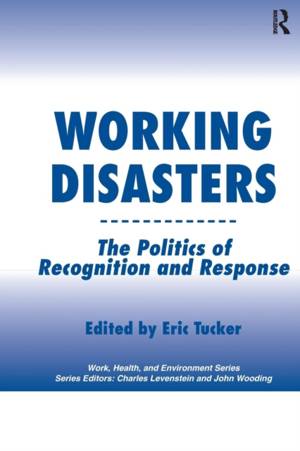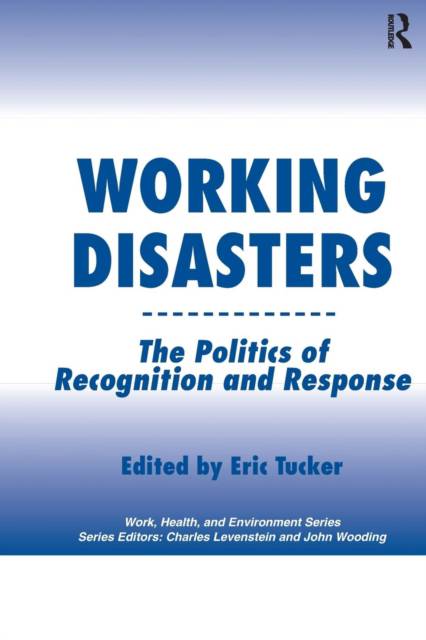
- Retrait gratuit dans votre magasin Club
- 7.000.000 titres dans notre catalogue
- Payer en toute sécurité
- Toujours un magasin près de chez vous
- Retrait gratuit dans votre magasin Club
- 7.000.0000 titres dans notre catalogue
- Payer en toute sécurité
- Toujours un magasin près de chez vous
Description
Addresses the politics of recognition in case studies of the long-haul trucking industry, repetitive strain injuries, and lung disease in miners. This text considers the politics of response in studies of a factory fire, the loss of an offshore oilrig, lung disease among miners, a mine explosion, and the prosecution of health and safety offences.
Spécifications
Parties prenantes
- Auteur(s) :
- Editeur:
Contenu
- Nombre de pages :
- 336
- Langue:
- Anglais
- Collection :
Caractéristiques
- EAN:
- 9780415784412
- Date de parution :
- 07-12-16
- Format:
- Livre broché
- Format numérique:
- Trade paperback (VS)
- Dimensions :
- 152 mm x 229 mm
- Poids :
- 439 g

Les avis
Nous publions uniquement les avis qui respectent les conditions requises. Consultez nos conditions pour les avis.






